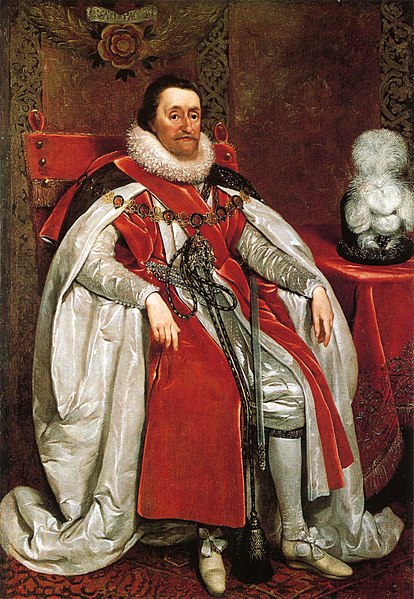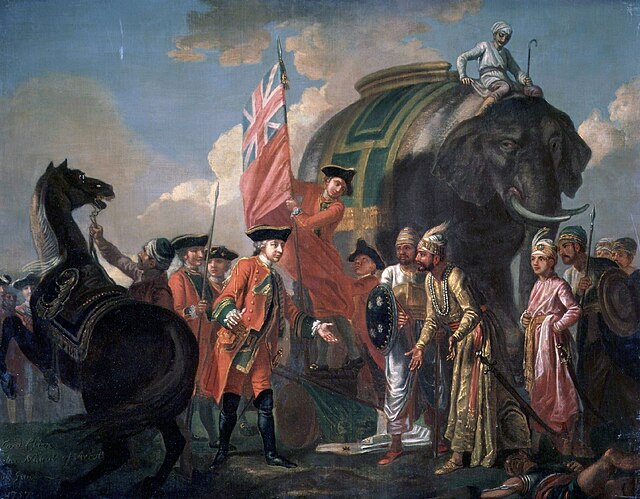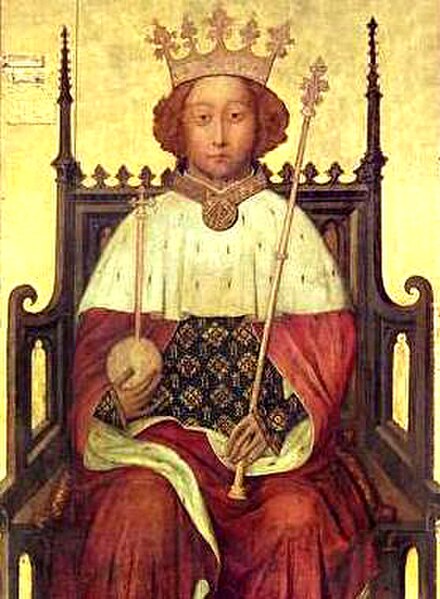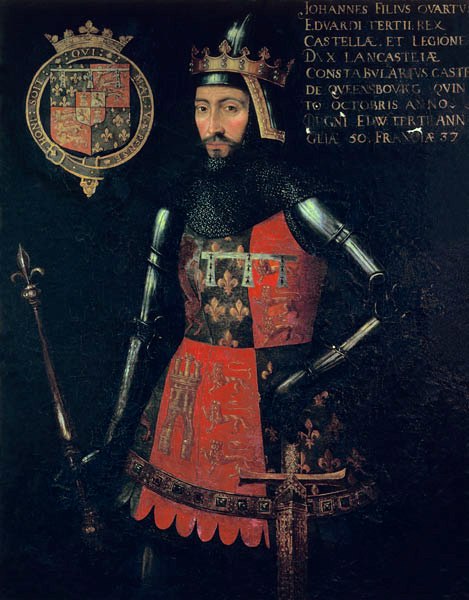Early modern Britain is the history of the island of Great Britain roughly corresponding to the 16th, 17th and 18th centuries. Major historical events in early modern British history include numerous wars, especially with France, along with the English Renaissance, the English Reformation and Scottish Reformation, the English Civil War, the Restoration of Charles II, the Glorious Revolution, the Treaty of Union, the Scottish Enlightenment and the formation and the collapse of the First British Empire.
James I of England by Daniel Mytens (1621)
The Arrival of William III by Sir James Thornhill. William III landed in England on 5 November (Guy Fawkes day) 1688.
Collecting the dead for burial during the Great Plague
Lord Clive meeting with Mir Jafar after the Battle of Plassey, by Francis Hayman (c. 1762)
The Wars of the Roses, known at the time and in following centuries as the Civil Wars, were a series of civil wars fought over control of the English throne from 1455 to 1487. The wars were fought between supporters of the House of Lancaster and House of York, two rival cadet branches of the royal House of Plantagenet. The conflict resulted in the end of Lancaster's male line in 1471, enabling the Tudor family to inherit their claim to the throne through the female line. Conflict was largely brought to an end upon the union of the two houses through marriage, creating the Tudor dynasty that would subsequently rule England.
Miniature of the Battle of Tewkesbury, late 15th century
Edward III was the father of five dukes: Edward (Cornwall), Lionel (Clarence), John (Lancaster), Edmund (York), and Thomas (Gloucester).
Richard II was a child-king who succeeded his grandfather Edward III shortly after the death of his father, Edward the Black Prince.
John of Gaunt, founder of the House of Lancaster








